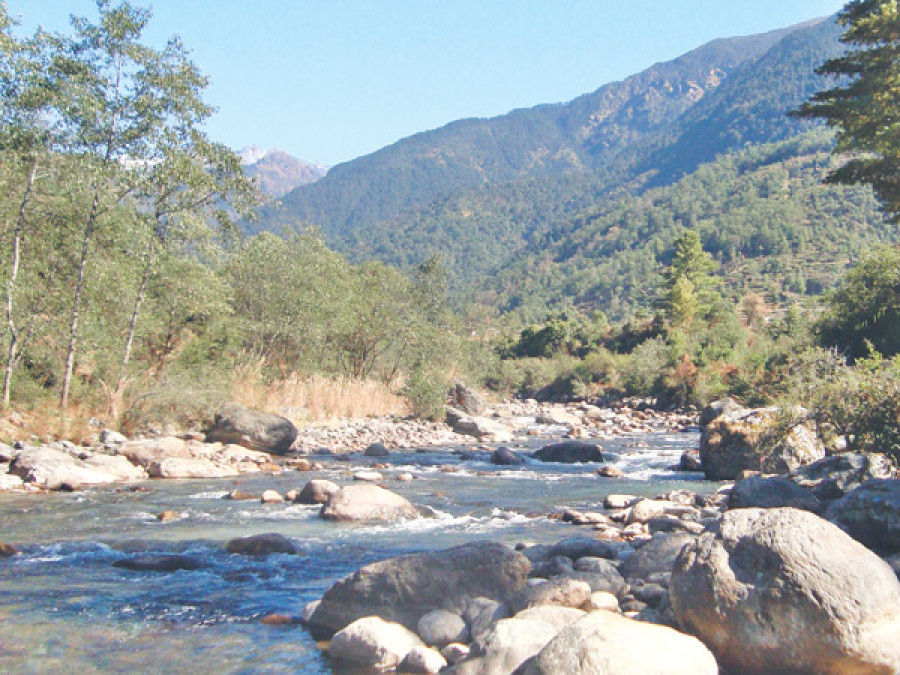Money
Govt to shorten EIA from 120 to 39 days
The government plans to slash the time taken to complete an environmental impact assessment (EIA) by more than two-thirds in a bid to speed up approvals for major development projects.
Prithvi Man Shrestha
The government plans to slash the time taken to complete an environmental impact assessment (EIA) by more than two-thirds in a bid to speed up approvals for major development projects.
The Ministry of Science, Technology and Environment said that the regulation would be changed to shorten the EIA process for national pride projects and other schemes the government thinks need to be rushed.
Green reviews currently last more than 120 days, and the government wants to bring it down to 39 days, Chief Secretary Som Lal Subedi said on Sunday
Speaking at the Training on Implementation of Project Development Agreement (PDA), jointly organised by Investment Board Nepal and Nepal Administrative Staff College, Subedi said, “The number of days it takes to get clearance from the Ministry of Science, Technology and Environment will be reduced to 30 days from more than 60 days.”
A lengthy EIA process and complicated land acquisition and forest clearance have emerged as big hurdles to the development of major infrastructure projects in recent years. “We have sought to reduce time consuming procedures significantly at the central level,” said Subedi.
Secretary of the Ministry of Science, Technology and Environment Vijay Kumar Mallick said that the ministry was planning to submit the proposed regulation to the Cabinet for its approval within a couple of days. He said that the move had been taken to accelerate the pace of key development projects as the EIA lasts around 126 days.
According to him, the regulation will cover national pride projects whether they are being executed by the government or the private sector.
“The EIA of projects that require immediate construction, such as the quake-damaged Kathmandu-Rasuwagadhi road, could also get environmental clearance under the proposed new regulation,” said Mallick.
Likewise, the government will also be halving the initial environment examination (IEE) process to seven days from the current 15 days, according to the chief secretary. An IEE needs to be conducted to extract stones and pebbles from rivers. While conducting an EIA, the concerned developer first has to issue a public notice. The developer then conducts a stakeholder interaction and public hearing at the local level and prepares the EIA. Consultants, local government agencies and the general public are important stakeholders in the EIA process. The Environment Ministry reviews the EIA process, the initial report on environmental impact in certain areas and the final report.
Meanwhile, the Cabinet recently decided that development projects could conduct the EIA by incorporating locally available construction materials. “This will enable development projects to get construction materials nearby,” said Subedi.
Obstacles should be removed: PM
KATHMANDU: Administrative measures should be taken and consultation should be done to remove obstacles to major development projects, Prime Minister KP Sharma Oli said Sunday.
Stating that development projects were being slowed down by government agencies and local people under various pretexts, Oli said that first all the stakeholders should be made to understand the benefits of a potential project.
Justice should be served if measures to bring all the stakeholders to an understanding fails, the Prime Minister said, speaking at the Training on Implementation of Project Development Agreement (PDA), jointly organised by Investment Board Nepal and Nepal Administrative Staff College.
The Prime Minister was concerned by the tendency of locals to claim a river for their use, making it difficult for the state to put the river to greater use for the country’s development. “There is a trend of inflating land prices when development projects are planned in any place,” he complained. Likewise, Chief Secretary Som Lal Subedi said that lawmakers should play a proactive role to settle local-level problems while speaking at the training attended by chief district officers, local development officers and lawmakers.
He added that lawmakers could work as resource persons in other projects if they helped settle local issues in a project in their locality. Investment Board Nepal CEO Radhes Pant said lawmakers could play a constructive role by discouraging the tendency of provoking locals to obstruct major development projects.




 20.12°C Kathmandu
20.12°C Kathmandu













